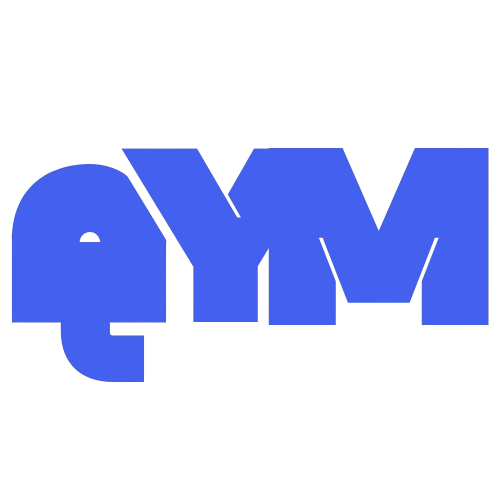Discover top tips for securing jobs with the Chronicle of Higher Education Jobs Board. Learn how to craft compelling applications, optimize your job search, and stand out as a candidate in academia.
Introduction
The Chronicle of Higher Education Jobs Board is a premier resource for professionals seeking careers in academia and administration. Whether you’re an aspiring professor, a seasoned researcher, or an administrator looking for the next step, the platform offers countless opportunities tailored to the world of higher education. However, with fierce competition in the academic job market, it takes more than a polished CV to land your dream position.
In this article, we will explore top tips for securing Chronicle of Higher Education jobs by delving into essential strategies, from preparing a standout application to mastering the interview process. With insights tailored to academic job seekers, this guide will equip you with the tools to navigate the platform effectively and present yourself as the ideal candidate for your desired role.
Also see; Finding Opportunities with Chronicle of Higher Education Jobs
Also see; How to Navigate the Chronicle of Higher Education Jobs Board
Let’s begin by understanding what makes the Chronicle Jobs Board a standout platform for job seekers in academia.
Understanding the Chronicle of Higher Education Jobs Board
The Chronicle of Higher Education Jobs Board is a specialized platform designed to connect higher education professionals with employment opportunities across the academic and administrative spectrum. Renowned for its comprehensive listings and user-friendly interface, it serves as a vital resource for those navigating the unique world of academia.
Key Features of the Chronicle Jobs Board
- Extensive Job Listings: The platform includes opportunities for faculty, staff, and administrative roles, spanning a wide range of disciplines and institutions.
- Customizable Search Tools: Users can filter listings based on job type, location, institution size, and other criteria.
- Employer Insights: Gain valuable information about institutions, such as their mission, values, and recent initiatives.
- Job Alerts: Set up tailored email notifications to stay informed about new openings that match your preferences.
- Application Management: Track your applications directly on the platform, ensuring you stay organized throughout your search.
Why It’s Valuable for Job Seekers in Academia
The Chronicle Jobs Board stands out because it caters specifically to the academic community. Unlike general job boards, it understands the nuances of academia, providing job seekers with tools to find positions that align with their teaching, research, and administrative expertise.
In addition to job postings, the Chronicle offers resources like articles, career advice, and webinars to help candidates succeed in the competitive higher education job market. For those looking to grow professionally, it’s more than just a job board—it’s a comprehensive career development hub.

Preparing for Your Job Search
Before diving into job applications, it’s crucial to lay a solid foundation for your search. This involves assessing your career goals, tailoring your application materials, and understanding the expectations of higher education employers.
1. Defining Your Career Goals
- Identify Your Interests: Reflect on your academic passions, preferred teaching style, and research areas to target roles that resonate with your strengths.
- Set Short-Term and Long-Term Goals: Define where you see yourself in 1, 5, or 10 years. This clarity will help you focus on positions that align with your trajectory.
2. Tailoring Your CV and Cover Letter
Unlike resumes for corporate jobs, academic CVs require a detailed account of your scholarly achievements.
- Include:
- Education and certifications.
- Research publications and conference presentations.
- Teaching experience and methodologies.
- Grants, awards, and recognitions.
- Craft a Tailored Cover Letter: Address the institution’s mission and explain how your skills and experiences align with the role.
3. Understanding Employer Expectations
- Teaching Excellence: Highlight evidence of effective teaching, such as student feedback or innovative course designs.
- Research Contributions: Demonstrate your ability to contribute to the institution’s research goals.
- Service to the Institution: Showcase leadership roles, committee work, or mentorship experiences.
How to Use the Chronicle Jobs Board Effectively
Making the most of the Chronicle of Higher Education Jobs Board requires more than browsing listings. Employ strategies that optimize your time and increase your chances of finding suitable roles.
1. Optimizing Your Search
- Use Filters: Narrow your search by institution type, job function, or location.
- Save Searches: Create and save specific searches for quick access in the future.
- Explore Related Jobs: Use the platform’s recommendations to uncover opportunities you may have missed.
2. Setting Up Job Alerts
Automated email alerts help you stay ahead of the competition. Set alerts for roles based on keywords like “faculty,” “administration,” or specific disciplines.
3. Researching Institutions
Learn about prospective employers by reviewing their profiles on the platform. Pay attention to:
- Institutional values and mission statements.
- Recent initiatives or changes in leadership.
- Details about the student body and faculty composition.
Crafting an Outstanding Application
An effective application is key to standing out in the competitive world of academia.
1. Writing a Compelling Cover Letter
- Address the Hiring Committee: Avoid generic salutations like “To Whom It May Concern.”
- Tailor to the Role: Highlight specific qualifications that match the job description.
- Showcase Institutional Fit: Explain how your expertise aligns with the department’s goals.
2. Highlighting Your Academic CV
Organize your CV with clear headings, such as:
- Education
- Research
- Teaching Experience
- Service
- Skills and Certifications
3. Providing Strong References
- Choose Wisely: Select references who can speak to your teaching and research capabilities.
- Prepare Your References: Inform them about the positions you’re applying for and provide your application materials for context.
Strategies to Stand Out as a Candidate
Standing out requires more than meeting qualifications; it involves showcasing your unique contributions.
1. Emphasize Collaborative Skills
Demonstrate your ability to work effectively with colleagues on interdisciplinary projects or committees.
2. Share Evidence of Impact
- Present examples of improved student outcomes under your instruction.
- Highlight publications that have influenced your field.
3. Leverage Online Presence
Create a professional portfolio website that includes:
- Academic achievements
- Teaching philosophy
- Links to published work
Navigating the Interview Process
Preparing for academic interviews involves mastering several formats.
1. Phone or Video Interviews
- Ensure a quiet, professional setting.
- Test your technology in advance.
2. Campus Visits
Campus interviews often include teaching demonstrations and research presentations.
- Practice delivering lectures to colleagues for feedback.
- Prepare to answer questions about how you’d contribute to the institution’s goals.
Networking to Enhance Your Job Prospects
Networking is essential in the academic job market.
1. Attend Conferences and Seminars
Conferences are excellent for building connections and learning about potential opportunities.
2. Use LinkedIn and Academic Networks
Engage with professionals and institutions by sharing your expertise on platforms like LinkedIn or ResearchGate.
3. Join Professional Associations
Associations like the American Association of University Professors (AAUP) provide networking events and job resources.
Common Mistakes to Avoid in the Job Search Process
- Submitting Generic Applications: Tailor each application to the specific role.
- Neglecting Networking: Build relationships even before roles are posted.
- Ignoring Follow-Up: Send polite follow-ups after interviews or application submissions.
Real-Life Success Stories and Case Studies
Consider the story of Dr. Emily Reed, who landed a tenure-track position by:
- Crafting a CV that showcased her teaching innovations.
- Using the Chronicle Jobs Board to identify positions aligned with her expertise.
- Building a network through conference presentations.
Tools and Resources to Boost Your Search
| Resource | Purpose |
|---|---|
| Chronicle Jobs Board | Job search and application tool |
| Networking and professional branding | |
| CV Writers | Assistance with academic CVs |
| ResearchGate | Sharing and discovering research |
Conclusion
Securing a position through the Chronicle of Higher Education Jobs Board is an achievable goal with preparation, strategy, and persistence. By leveraging the board’s features, crafting strong applications, and building a robust professional network, you can position yourself as a standout candidate in the competitive academic job market.
Take these tips to heart, start exploring opportunities today, and set yourself on the path to a fulfilling career in higher education.



